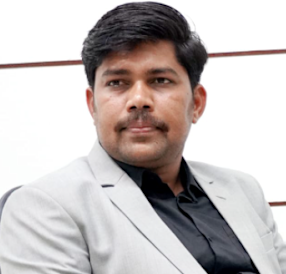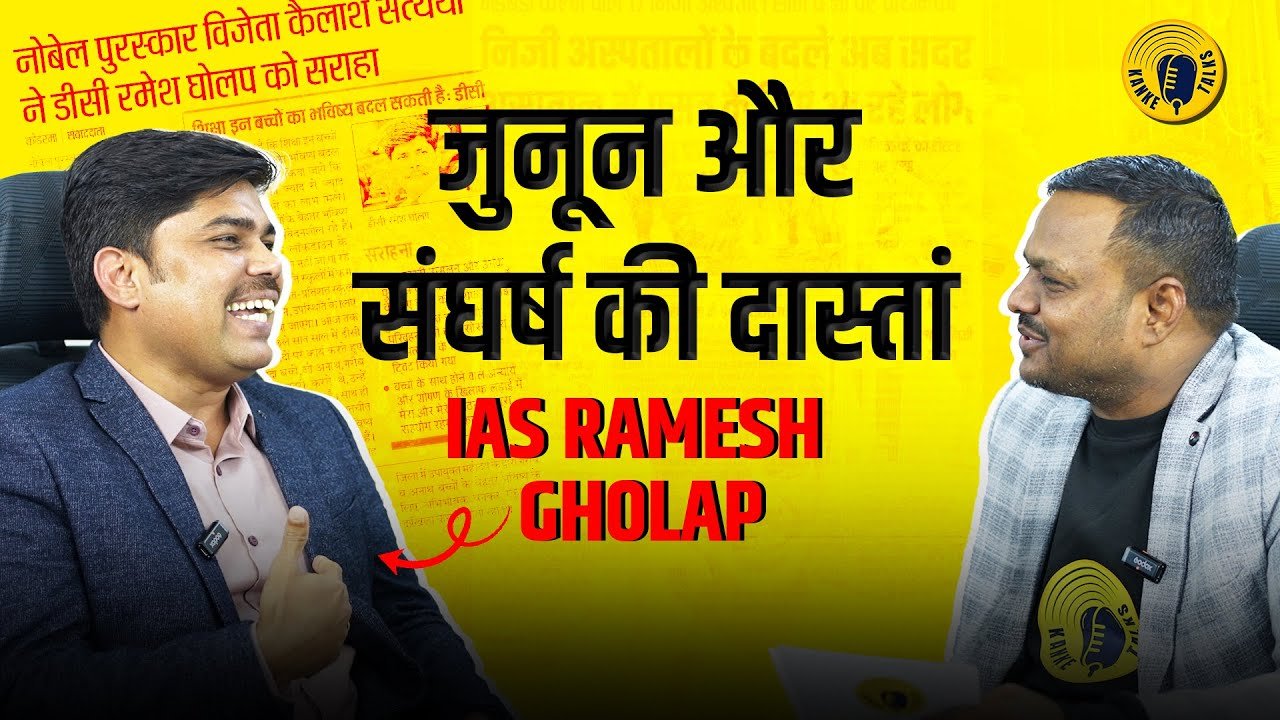Because every story deserves to be told…
When life tests us, it often doesn’t knock—it storms in, uninvited. For Dr. Ramesh Gholap, those storms started early. Born in the small village of Mahagaon in Maharashtra’s Solapur district,he was just one among thousands of children battling poverty, familial hardship, and social stagnation. But unlike many, Ramesh chose not to be defined by his circumstances. Instead, he turned them into fuel

A Childhood Wrapped in Struggles
Imagine growing up in a village with fewer than 1500 people, displaced by a dam project, where survival was the only education. Ramesh’s father ran a modest bicycle repair shop. But alcohol claimed both the business and eventually his life. His mother, a woman who had never stepped inside a classroom, took to selling bangles to keep the family afloat.
By age one and a half, Ramesh was diagnosed with polio.
But instead of letting disability define him, he began what would become a lifelong habit — standing tall, even when life tried to knock him down.
“There were many challenges,” he recounts, “but I never let negativity settle inside me. My mother taught me that hard work, not circumstances, defines a person.”
The Mother Who Carried Dreams
If Ramesh is the fire, his mother is the spark.
From waking up at 3 AM to prepare tiffin for milk vendors, to laboring in strangers’ fields, she became both parent and provider.
More importantly, she became the voice whispering the impossible:
“Padho, beta. Sirf padhai hi zindagi badal sakti hai.” (Study, my child. Only education can change your life.)
Ramesh didn’t just study. He excelled.
Despite limited resources, he scored 88.5% in 12th grade through self-study in science subjects.
Instead of pursuing medicine — which was financially out of reach — he enrolled in a diploma course to become a primary school teacher.
But his heart? It was already chasing something bigger.
From Teacher’s Diploma to IAS Dreams
It was during his D.Ed. course that the first seeds of public service took root.
Ramesh became involved in student unions, public speaking, and community work.
The more he interacted with the administration, the more he envisioned himself as part of it — not on the receiving end, but in the role of a change-maker.
“I saw how people respected officials. I wanted to be that kind of person. Someone who could truly make lives better.”
He enrolled at Yashwantrao Chavan Maharashtra Open University for a degree in Arts (Agriculture).
With limited exposure, few mentors, and only a basic education in Hindi and Marathi, Ramesh dared to chase the biggest dream in India — UPSC.
The Cost of Courage
Ramesh’s first brush with real adversity came in 2005, during his final 12th board exams.
His father passed away. The family was broke. Rent was ₹50.
He got the news — not through a call (there were no mobiles) — but through a friend reading the obituary in a newspaper.
Even the bus fare to his village was a struggle.
And yet, he showed up. Again and again.
In 2009, Ramesh quit a secure government teaching job paying ₹56,000/month.
“People thought I was mad. But I knew I wanted to become something greater.”
With no land, no fallback, and an unemployed elder brother, he sold everything — even a new mobile phone — to fund his UPSC journey.
Friends pitched in. His brother sacrificed. His mother, as always, never blinked.
“Do what your heart says,” she told him.
Failures That Forged Him
His first UPSC attempt in 2010 was a failure. And so was the Panchayat election he contested to make his mother the village head.
“Seven out of seven seats we lost,” he chuckles now. “That day, I left the village and vowed to return only when I had achieved something.”
That ‘something’ came in 2011 when Ramesh topped the Maharashtra Public Service Commission (MPSC) exam. In 2012, he cracked the UPSC.
He went from being a boy who couldn’t afford bus fare to becoming a District Collector. The village that once pitied him now welcomed him with rallies and pride.
A Love Story Rooted in Friendship
In the shadows of struggle bloomed a quiet, enduring love.
His close friend — now his wife — stood by him not after his success, but through his failures.
“She didn’t love the IAS badge,” Ramesh says, “She loved the person who dared to chase it.”
Breaking the Myths Around UPSC
Ramesh didn’t go to English-medium schools. He wasn’t from a top college. His degree was from an open university.
Still, he made it.
To every Hindi-medium student doubting themselves, he says:
“Adversity isn’t your weakness. It’s your edge. Some break under pressure. Others break records.”
The IAS Officer Who Remembers Where He Came From
In his administrative career across Jharkhand — Koderma, Khunti, Garhwa, Chatra — Ramesh remains the same: grounded, gritty, people-first.
He cancelled over 25,000 fake ration cards in Koderma. Freed 500+ child laborers. Rolled out pension drives so efficient that villagers got sanctioned pensions in 48 hours.
He worked with CRPF to rehabilitate Naxal-hit areas like Budha Pahad, taking schemes door-to-door where even roads didn’t reach.
“I never forget what it felt like to be denied because of poverty. That’s why I ensure the system works for those who need it the most.”
On Leadership, Legacy, and What’s Next
For Ramesh, real leadership stems from sensitivity.
He knows what it’s like to grow up in darkness, to fear kerosene running out, to have your mother beg for BPL inclusion.
So, when he meets people, he doesn’t just hear them — he understands them.
Does he see a future in politics?
“No,” he laughs. “When I retire, I’ll farm. I just want to serve while I can. I believe I was given this life for a reason.”
Final Words: A Message to India’s Youth
To the youth battling distractions, Ramesh has a simple message:
“First, find yourself. Not everyone needs to be an IAS. But everyone must discover their purpose. Don’t copy. Create. And remember — life’s not a shortcut. It’s a climb.”

No responses yet